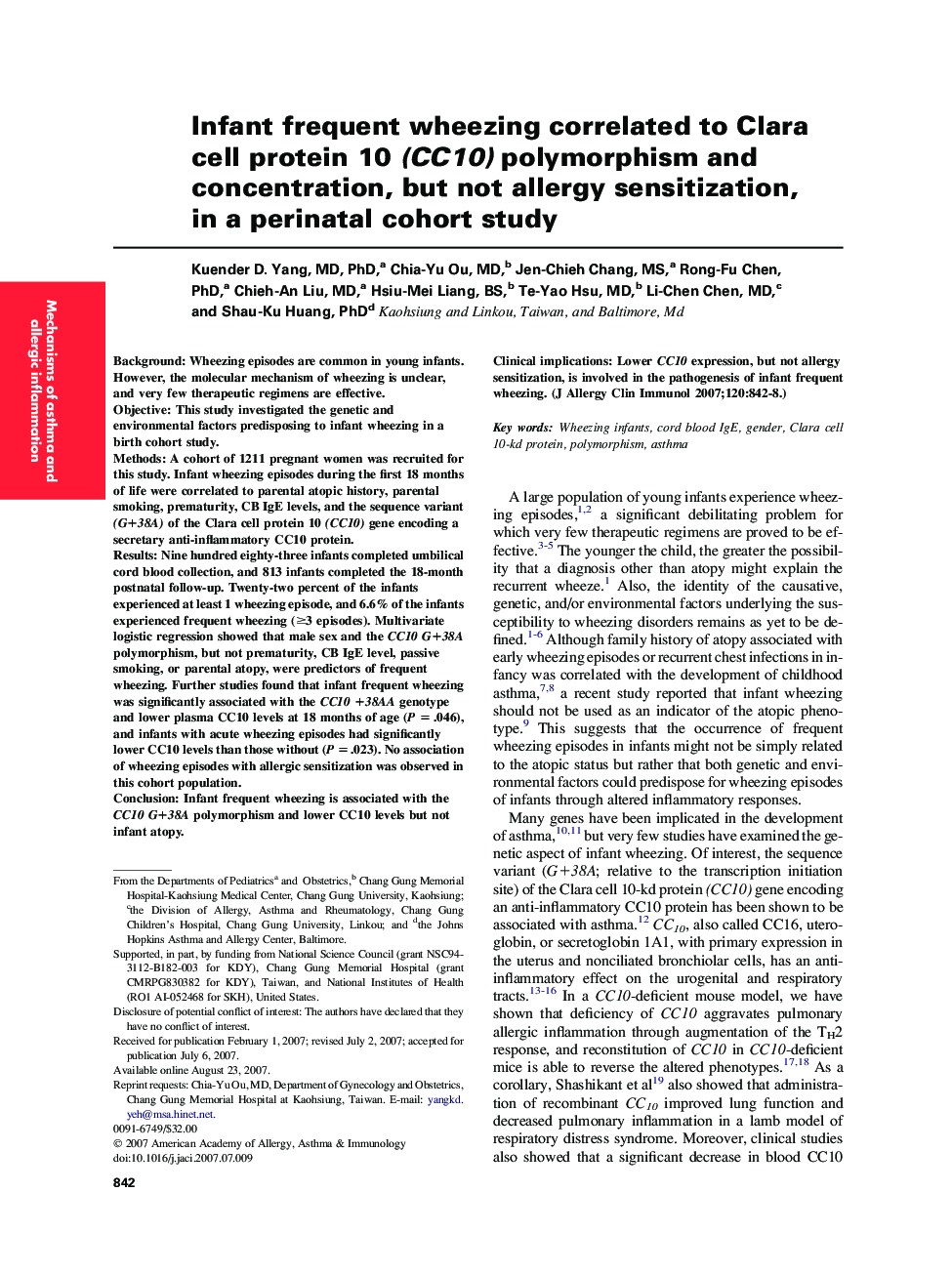| Article ID | Journal | Published Year | Pages | File Type |
|---|---|---|---|---|
| 3203197 | Journal of Allergy and Clinical Immunology | 2007 | 7 Pages |
BackgroundWheezing episodes are common in young infants. However, the molecular mechanism of wheezing is unclear, and very few therapeutic regimens are effective.ObjectiveThis study investigated the genetic and environmental factors predisposing to infant wheezing in a birth cohort study.MethodsA cohort of 1211 pregnant women was recruited for this study. Infant wheezing episodes during the first 18 months of life were correlated to parental atopic history, parental smoking, prematurity, CB IgE levels, and the sequence variant (G+38A) of the Clara cell protein 10 (CC10) gene encoding a secretary anti-inflammatory CC10 protein.ResultsNine hundred eighty-three infants completed umbilical cord blood collection, and 813 infants completed the 18-month postnatal follow-up. Twenty-two percent of the infants experienced at least 1 wheezing episode, and 6.6% of the infants experienced frequent wheezing (≥3 episodes). Multivariate logistic regression showed that male sex and the CC10 G+38A polymorphism, but not prematurity, CB IgE level, passive smoking, or parental atopy, were predictors of frequent wheezing. Further studies found that infant frequent wheezing was significantly associated with the CC10 +38AA genotype and lower plasma CC10 levels at 18 months of age (P = .046), and infants with acute wheezing episodes had significantly lower CC10 levels than those without (P = .023). No association of wheezing episodes with allergic sensitization was observed in this cohort population.ConclusionInfant frequent wheezing is associated with the CC10 G+38A polymorphism and lower CC10 levels but not infant atopy.Clinical implicationsLower CC10 expression, but not allergy sensitization, is involved in the pathogenesis of infant frequent wheezing.
